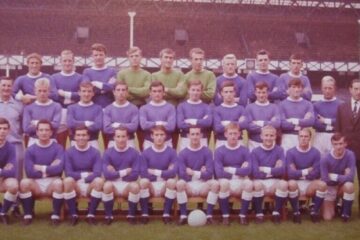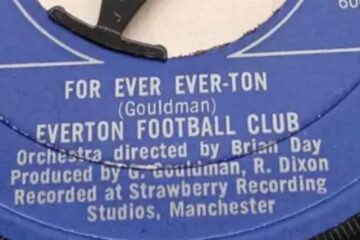Richie Gillham
Early Life and Football Beginnings
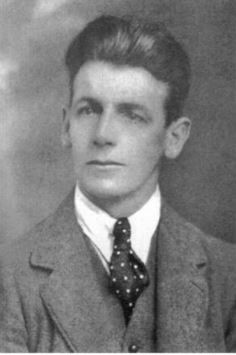
(Photo: Bob Goodwin, ‘The Spurs Alphabet: Complete Who’s Who of Tottenham Hotspur F.C.’ (1992) )
Robert Pilch, more commonly known by his middle name George, was born on 12 October 1877 in Holt, Norfolk. From a young age, George showcased his athletic prowess, particularly in football. Although born into a family with a rich cricketing heritage (his great-uncle, Fuller Pilch, was a legendary cricketer), George focused on football. His father was also heavily involved in sports, organising the Norwich Church of England Young Men’s Society (CEYMS) ground. This family background provided George with a strong foundation in both football and cricket.
George began his football career with a local team, Melton Constable, before moving to Norwich CEYMS, a club that was integral to the early football scene in Norwich, and made a significant contribution to the formation of Norwich City Football Club. CEYMS, also nicknamed ‘The Churchmen,’ were dominant in local competitions, winning the Norfolk Senior Cup four times between 1897 and 1902.
In 1903, George moved to Tottenham Hotspur, where he played in the London and Western Leagues. He was versatile on the pitch, excelling as both a centre-forward and left half-back. However, his stint at Tottenham was short-lived, with only three appearances between 1903 and 1905, partially due to a knee injury.
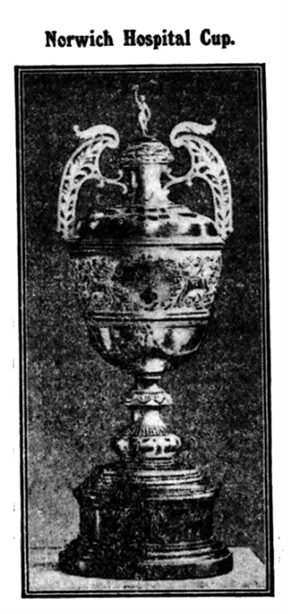
(Courtesy of Billy Smith, The Blue Chronicles)
Despite his tenure at Tottenham, George’s connection to Norwich football remained, and in 1911 Pilch made two appearances for Norwich City in the Southern Football League. His final top-level football appearance came in 1912, when he played a single match for Everton in the Norfolk & Norwich Hospital Cup (N&NHC).
The Memorable Everton Experience
One of the most remarkable incidents in George Pilch’s football career occurred in 1912. Everton travelled to Norwich to play in the N&NHC, but one of their key players, Jack Sharp, missed his train, leaving them short a player. Pilch, who was supposed to officiate the match as a referee, stepped in to play for Everton. Despite being an amateur compared to Everton’s regular players, Pilch held his own, helping Everton earn a 1-1 draw.
Administrative and Leadership Roles in Football
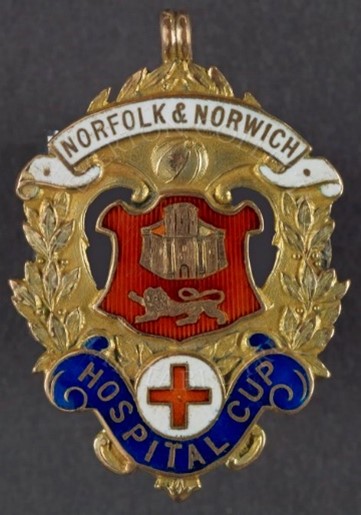
(The Everton Collection)
He returned to play for Norwich CEYMS, a club he would go on to serve in various roles, including committeeman, secretary, chairman, and president. His dedication to Norwich CEYMS highlights his commitment to fostering football in his hometown.
George later became a director and vice-chairman of Norwich City Football Club, where his experience as a player and his passion for football allowed him to make significant contributions. One of these is said to be his involvement in the building of their current stadium at Carrow road in 1935. His leadership at the club helped in its growth and solidification as it became an essential part of the Norwich sports community.
Cricket Career and the Pilch Family Sporting Legacy
Though George Pilch made his name primarily as a footballer, his involvement in cricket was equally noteworthy. From 1899 to 1921, George played thirty-six matches for Norfolk in the Minor Counties Championship. His consistent performances, both as a batsman and a bowler, further highlighted his sporting versatility. Although he did not achieve the national prominence of his great-uncle Fuller Pilch, George’s contributions helped sustain the Pilch family’s cricketing tradition.
Fuller Pilch, George’s great-uncle, is regarded as one of the finest cricketers of the early 19th century. Fuller is specifically remembered for pioneering the ‘forward play’ technique, which revolutionised the game. He played 229 first-class matches for teams including, Kent, Norfolk, and Sussex, and was widely acknowledged as one of the best batsmen of his era.
Another notable member of the Pilch family was William Frederick Pilch, Fuller’s brother, who, like George, had a significant impact on both football and cricket. William Frederick Pilch was instrumental in the foundation of The Wednesday FC (later known as Sheffield Wednesday) and opened Sheffield’s first sports outfitter shop, contributing to the growth of sports in the region. His son, David Pilch, continued the family legacy within cricket, playing for Norfolk from 1961 to 1983, amassing an impressive 215 Minor Counties matches.
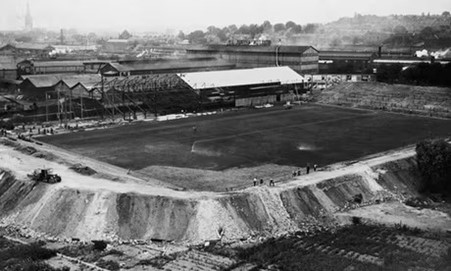
R.G. Pilch Sporting Outfitters
In 1906, George Pilch founded R.G. Pilch Sporting Outfitters in Norwich, a business that became a cornerstone of the city’s sporting community. The shop provided equipment for a range of sports and further cemented the Pilch family’s influence on the sporting culture of the region. During World War II, the shop was bombed twice, but George’s resilience allowed him to rebuild and reopen the business.
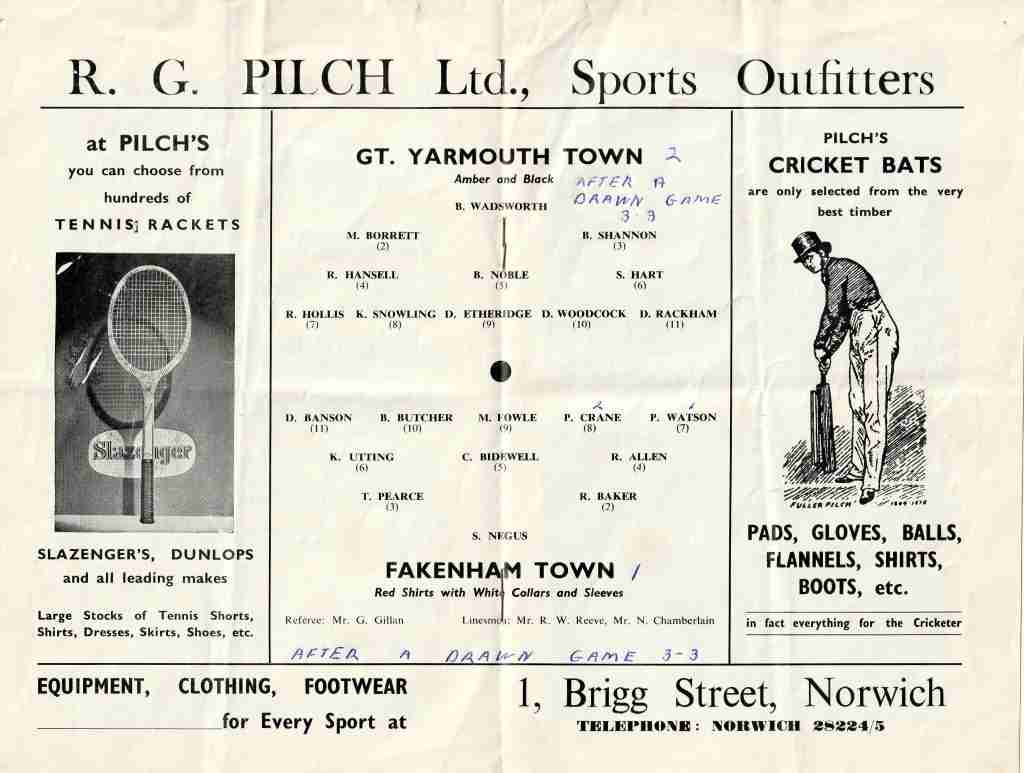
Military Service of George Pilch and William Frederick Pilch in WWI
During World War I, George Pilch was part of the Naval Establishment HMS President II, which served as a shore establishment for administrative and training purposes, before secondment to the newly formed Royal Air Force as an Air Craftsman. His relative, William Frederick Pilch, served with the Royal Warwickshire Regiment, as an Acting Lance Corporal and later Sergeant. After the war, he continued his business ventures, running W. Fuller Pilch & Co in Sheffield and engaging in various entrepreneurial activities.
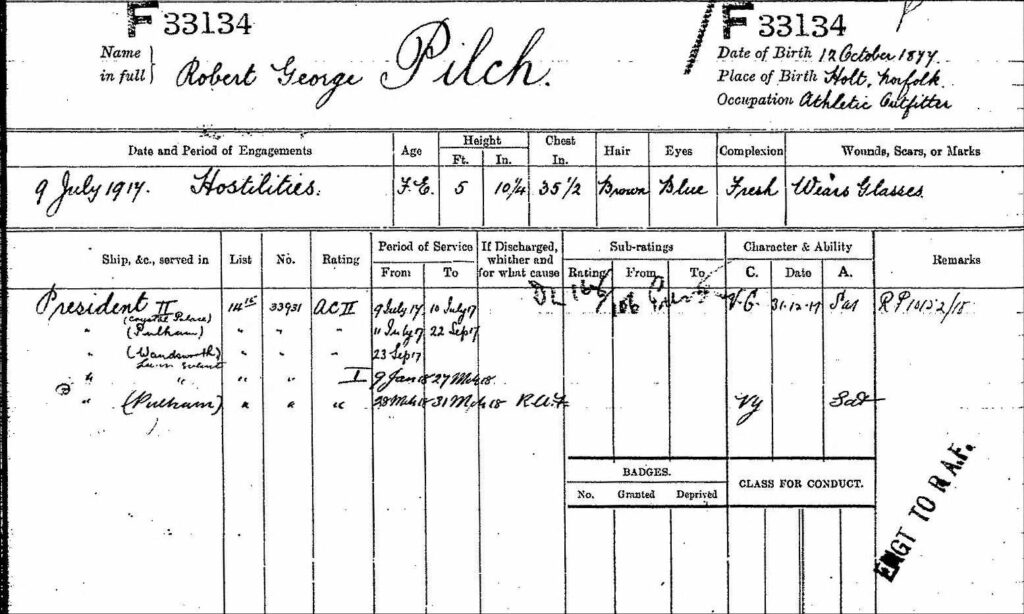
Robert George Pilch’s life is a testament to his versatility and commitment to sport. From his early days as a footballer with Norwich CEYMS, to his brief but memorable stints with Norwich City, Tottenham Hotspur and Everton, and later his administrative roles at Norwich City, Pilch’s contributions to football in Norwich are impressive. His cricketing career, though not as celebrated as his football exploits, reflects his deep love for the game and his family’s enduring legacy in cricket.
The Pilch family made a recognised impact in both cricket and football. Fuller Pilch’s revolutionary contributions to cricket, William Frederick’s role in founding Sheffield Wednesday, and George’s leadership in Norwich football demonstrate the family’s extensive influence on both games. Today, the legacy of the Pilch family endures, reminding us of the rich history of sportsmanship, innovation, and community spirit that they helped shape.
Bibliography
Goodwin, Bob, The Spurs Alphabet: Complete Who’s Who of Tottenham Hotspur F.C. (1992)
Robert Pilch, listed on 11v11.com
Minor Counties Championship Matches Played by Robert Pilch, Cricket Archive – Posted on https://cricketarchive.com/subscribe (NB – subscription paywall).
Westby, Martin, Sheffield FC 1875 Medal Won by William F. Pilch. Posted on England’s Oldest Football Clubs.
Brown, R. J. ‘Player Profile: Fuller Pilch,’ The Cricketer – Posted on https://www.espncricinfo.com/cricketers/fuller-pilch-18956
Norfolk News and the Liverpool Echo; various articles from 1907 covering the Norwich Hospital Cup.
Acknowledgements
Proof read by Jim Keoghan
Edited and laid out by Mike Royden


